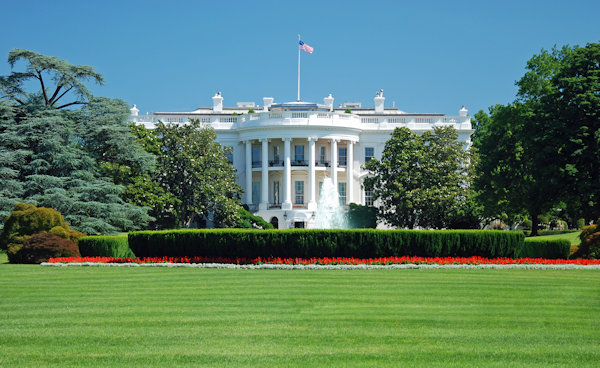GCFA legal services interprets recent executive order on religious liberty.
On May 4, 2017, President Trump signed an Executive Order entitled “Promoting Free Speech and Religious Liberty” (the “Executive Order”). Earlier this year, President Trump promised to “totally destroy” the Johnson Amendment. The Executive Order is an action related to that promise.
The operative language of the Executive Order, as it relates to the Johnson Amendment, is as follows:
In particular, the Secretary of the Treasury shall ensure, to the extent permitted by law, that the Department of the Treasury does not take any adverse action against any individual, house of worship, or other religious organization on the basis that such individual or organization speaks or has spoken about moral or political issues from a religious perspective, where speech of similar character has, consistent with law, not ordinarily been treated as participation or intervention in a political campaign on behalf of (or in opposition to) a candidate for public office by the Department of the Treasury. (emphasis added)
Historical context
The “Johnson Amendment” – proposed by then-Senator Lyndon B. Johnson in 1954 – is language included in Section 501(c)(3) of the Internal Revenue Code. It places certain limitations upon the activities of organizations which are exempt from federal income tax pursuant to § 501(c)(3). Specifically, such organizations may not “participate in, or intervene in (including the publishing or distributing of statements), any political campaign on behalf of (or in opposition to) any candidate for public office.”
Historical enforcement
While much has been said about this prohibition since its enactment in 1954, reports of churches losing their tax-exempt status because of the Johnson Amendment are rare. A few recent lawsuits help illustrate why.
The first relates to the Internal Revenue Service’s attempted audit of a church in 2007 and the question of how such an audit may be authorized. Section 7611 permits the IRS to initiate an audit of a church only if an “appropriate high-level Treasury official” believes circumstances are present that warrant the audit. (Audits are not limited to church poiticking issues.) The IRS had, through regulatory action, specified the position within the agency it deemed sufficient to meet the requirement of § 7611. However, subsequent reorganization of the IRS eliminated that position, and the IRS had not named a replacement. Thus, when the church that was the subject of the 2007 audit refused to cooperate, a lawsuit ensued. In early 2009, the federal district court ruled that the IRS official who approved the initiation of the audit did not meet the requirements of § 7611. (United States v. Living Word Christian Center, No. 0:2008-mc-00037; D.Minn. Jan. 30, 2009.) This eventually led to the IRS’s October 2012 announcement that it was suspending all church audits until it had designated which high-level Treasury official could initiate them.
The second case was filed by the atheist organization Freedom From Religion Foundation (“FFRF”) in November 2012. In its lawsuit, (Freedom From Religion Foundation, Inc. v. Shulman, No. 3:12-cv-00818; W.D.Wis.) FFRF sought, among other things, a court order directing the IRS to designate an agency official who would be able to initiate audits of churches that violate the Johnson Amendment’s prohibitions. The two sides eventually settled the suit in July 2014, after the IRS apparently convinced FFRF that it had taken steps sufficient to allow it to once again initiate church audits. This settlement eventually spurned another lawsuit, filed in April 2015 by the Alliance Defending Freedom. The suit demanded the IRS disclose the policies and procedures for church audits it purportedly put in place as a part of the settlement with FFRF. Among other things, the Alliance Defending Freedom promotes “Pulpit Freedom Sunday,” an annual event in which preachers are encouraged to discuss politics from their pulpits on a designated Sunday morning in September. This case is ongoing.
Potential impact of the order
The language of the Executive Order, when viewed within the landscape established by these cases and by the IRS’s apparent ongoing reluctance to initiate audits of churches that have (sometimes openly) violated the politicking prohibitions, would seem to fall well short of total destruction of the Johnson Amendment. Indeed, those on both sides of the issue have noted the tameness of the language. See story USA Today.
One interpretation of the Order is that it is meant to encourage pastors and churches to more freely engage in speech and activities that are prohibited by the Johnson Amendment, without fear of reprisal from the IRS. Even should this be the intent of this portion of the Order, GCFA encourages caution in this arena. The italicized phrases in the above-quoted portion of the Order are significant. Whatever one believes the law should be on this issue, it is clear that the law prohibits churches from campaigning for or against a candidate for public office. It would therefore be entirely “consistent with law” for the IRS still to investigate a church that violates that clear prohibition.
As stated previously, the IRS has been reluctant to enforce the Johnson Amendment. The Order would appear to memorialize that status quo into official executive policy. However, United Methodist churches which wish to rely on historical practice or the Order’s language should do only with the full understanding that the Order does not create blanket protection for churches who violate the clear law as found in § 501(c)(3).
Update
On May 4, 2017, the Freedom From Religion Foundation (FFRF) filed a lawsuit seeking to have the Order deemed unconstitutional and seeking an injunction issued against its implementation.
Last Updated on January 9, 2023

